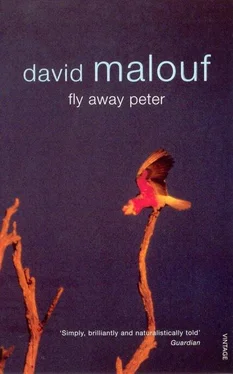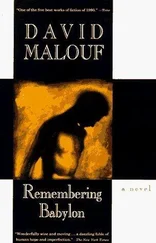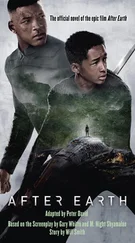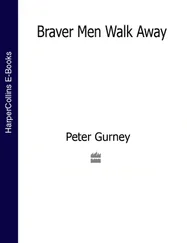David Malouf
Fly Away Peter
David Malouf is internationally recognised as one of Australia’s finest writers. His novels include Johnno, An Imaginary Life, Harland’s Half Acre, The Great World , which won the Commonwealth Writers’ Prize and the Prix Femina Etranger in 1991, and Remembering Babylon , which was shortlisted for the 1993 Booker Prize and won the inaugural IMPAC Dublin Literary Award in 1996. He has also written five collections of poetry and three opera libretti. He lives in Sydney.
Man is an exception, whatever else he is. If it is not true that a divine creature fell, then we can only say that one of the animals went entirely off its head.
G.K. Chesterton
Here is the bread of time to come,
Here is its actual stone. The bread
Will be our bread, the stone will be
Our bed and we shall sleep by night.
We shall forget by day, except
The moment when we choose to play
The imagined pine, the imagined jay.
Wallace Stevens
ALL MORNING, FAR over to his left where the light of the swamp ended and farmlands began, a clumsy shape had been lifting itself out of an invisible paddock and making slow circuits of the air, climbing, dipping, rolling a little, then disappearing below the trees.
The land in that direction rose gradually towards far, intensely blue mountains that were soft blue at this time of day but would later approach purple. The swamp was bordered with tea-trees, some of them half-standing in water and staining the shallows there a tobacco brown. Its light was dulled by cloud shadows, then, as if an unseen hand were rubbing it with a cloth, it brightened, flared, and the silver shone through.
A vast population of waterbirds lived in the swamp, and in the paddocks and wooded country beyond were lorikeets, rosellas and the different families of pigeons — fruit-pigeon, bronze-wings, the occasional topknot or squatter — and high over all stood the birds of prey, the hawks and kestrels. But the big shadow was that of a bi-plane that all morning rose and dipped, its canvas drawn tight across struts, all its piano-wires singing. It was a new presence here and it made Jim Saddler uneasy. He watched it out of the corner of his eye and resented its bulk, the lack of purpose in its appearance and disappearance at the tree line, the lack of pattern in its lumbering passes, and the noise it made, which was also a disturbance and new.
Over behind him, where all this swampland drained into the Pacific, were dunes, shifting sand held together with purple-flowering pigweed and silvery scrub; then the surf — miles of it. You could walk for hours beside its hissing white and never see a soul. Just great flocks of gulls, and pied oyster-catchers flitting over the wet light, stopping, starting off again; not at random but after tiny almost transparent crabs, and leaving sharp, three-toed prints.
He had a map of all this clearly in his head, as if in every moment of lying here flat on his belly watching some patch of it for a change of shape or colour that would be a small body betraying itself, he were also seeing it from high up, like the hawk, or that fellow in his flying-machine. He moved always on these two levels, through these two worlds: the flat world of individual grassblades, seen so close up that they blurred, where the ground-feeders darted about striking at worms, and the long view in which all this part of the country was laid out like a relief-map in the Shire Office — surf, beach, swampland, wet paddocks, dry, forested hill-slopes, jagged blue peaks. Each section of it supported its own birdlife; the territorial borders of each kind were laid out there, invisible but clear, which the birds were free to cross but didn’t; they stayed for the most part within strict limits. They stayed. Then at last, when the time came, they upped and left; flew off in groups, or in couples or alone, to where they came from and lived in the other part of the year, far out over the earth’s rim in the Islands, or in China or Europe.
Holding one of them in the glasses he was aware of that also. This creature that I could catch so easily in my hands, feeling the heart beat and the strong wings flutter against my palms, has been further and higher even than that clumsy plane. It has been to Siberia. Its tiny quick eye has seen something big. A whole half of the earth.
The bi-plane appeared again, climbing steeply against the sun. Birds scattered and flew up in all directions. It flopped down among them, so big, so awkward, so noisy. Did they wonder what it ate? A hundred times bigger than any hawk or eagle its appetite would be monstrous. Did they keep their sharp eyes upon it?
Jim’s eye was on the swamphen. He had been watching it for nearly an hour with a pair of field-glasses provided by Ashley Crowther. There was a nest on a platform there among the reeds, with maybe five or six creamy-brown eggs.
Ashley Crowther was a young man, not all that much older than himself, who had been away to school in England and then at Cambridge, and had recently come back to manage his father’s land. He owned all the land beyond the swamp and from the swamp towards the ocean. The bi-plane was flying out of one of Ashley Crowther’s paddocks and was piloted, Jim guessed, by one of Ashley’s friends. There were regular weekend-guests at the homestead these days, young fellows, and also ladies, who arrived in automobiles wearing caps or with their heads swathed in voile against the dust of country roads, to ride, to eat big meals in the lamplit house and to dance to gramophone music on the verandah.
The swampland also belonged to Ashley, and because he was interested in the birds he had set Jim to watch it and to record its various comings and goings. It was a new idea that came from Europe, though Queensland in fact had passed a law to protect birds nearly forty years ago, before any other place in the Empire.
Ashley Crowther had sat on a log chewing a grass-stem and looked out dreamily over the swamp, and Jim had recognized right off a man he could talk to, even if they said nothing at all; and had shifted his feet, unused to this, and uncertain where it might lead. It wasn’t his place to make an opening.
‘Listen,’ Ashley had said. With no preliminaries, as if the whole thing had just that moment taken shape in his head, he laid out his plan; and Jim, who till then had been merely drifting, and might have drifted as far as the city and become a mill-hand or a tram-conductor, saw immediately the scope of it and felt his whole life change. A moment before this odd bloke had been a stranger. Now he stuck out his hand to be shaken and there was all the light of the swampland and its swarming life between them, of which Jim was to have sole charge.
He was twenty, and Ashley Crowther was a tall, inarticulate young man of twenty-three, who looked at times as if he was stooping under the weight of his watch-chain and who stumbled not only over words but over his own boots. But he had said ‘Well then, you’re my man,’ having that sort of power, and Jim was made. All the possibilities that for the past two years had tugged and nagged at him — the city, marriage, drink, the prospect of another thirty years of dragging his boot over sawdust in the Anglers’ Arms, of sitting reading the sports page with his feet propped on the bed-head while rain dripped into a basin on his bedroom floor, the sullenness and hard-jawed resentment of months that were all Sundays — suddenly hauled off and lifted. He was made free of his own life.
‘Jim’s a new man,’ his father told his drinking mates up at the pub with studied gloom. He had projected for Jim a life as flat, save for the occasional down-turn, as his own. It was inevitable, he declared, ‘for the likes of us.’
Читать дальше












